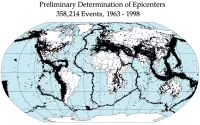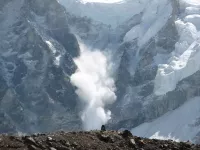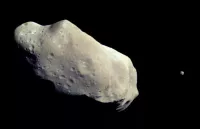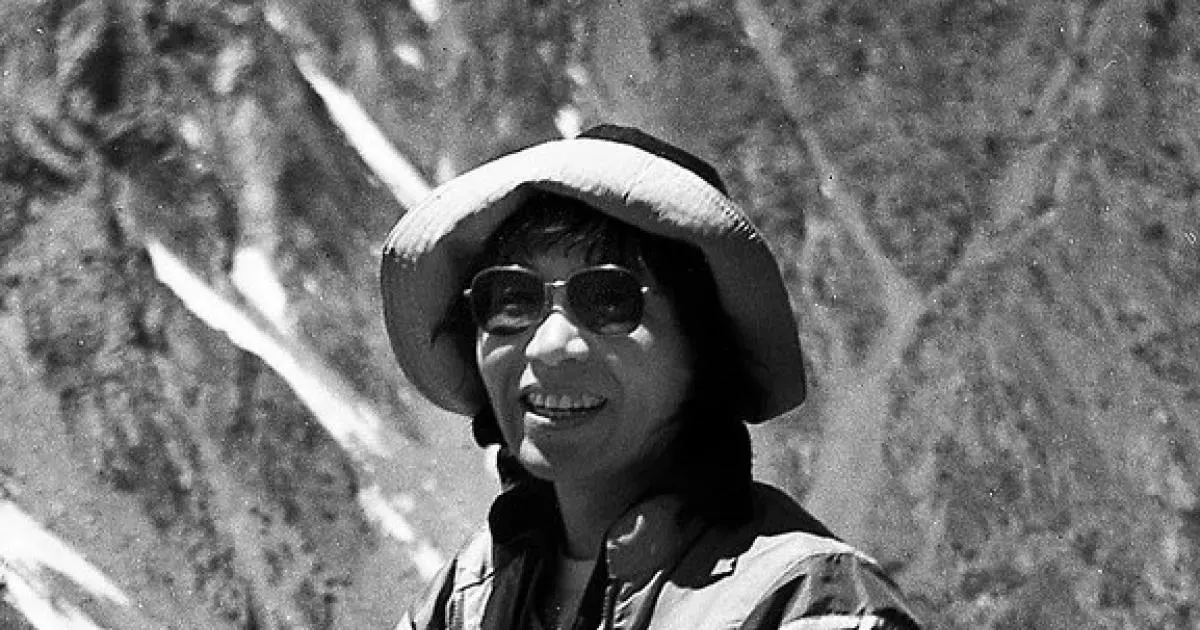Junko Tabei was a pioneering Japanese mountaineer who made history as the first woman to summit Mount Everest in 1975. She continued her record-breaking feats by becoming the first woman to ascend the Seven Summits, conquering the highest peaks on all seven continents. Beyond her mountaineering accomplishments, Tabei was also an author and teacher, inspiring many with her adventurous spirit and unwavering determination.
September 1939: Early Life and Introduction to Mountain Climbing
Born in September 1939, Junko Tabei discovered her passion for mountain climbing at the age of ten during a school trip to Mount Nasu. Despite being considered a frail child, she was captivated by the non-competitive nature of the sport and the stunning views from the summit.
September 1939: Birth of Junko Tabei
Junko Tabei, whose birth name was Junko Ishibashi, was born in September 1939.
1953: Following the Footsteps of Legends
The JWEE chose to ascend Mount Everest using the same route pioneered by Sir Edmund Hillary and Tenzing Norgay in 1953.
1958: Pursuit of Higher Education and Joining Climbing Clubs
In 1958, Junko Tabei began studying English and American literature at Showa Women's University, temporarily putting her climbing aspirations on hold.
1962: Graduation and Return to Climbing
Graduating in 1962, Junko Tabei reignited her passion for climbing, joining several men's climbing clubs. She faced skepticism and resistance from some male climbers who questioned her presence in a male-dominated field.
1969: Establishment of the Joshi-Tohan Club
In 1969, fueled by the discriminatory treatment she experienced in male-dominated climbing clubs, Junko Tabei founded the Joshi-Tohan Club, Japan's first all-women's climbing club. The club's motto, "Let's go on an overseas expedition by ourselves," reflected Tabei's vision of empowering women through mountaineering.
May 1970: Decision to Climb Mount Everest
Following the success of their Annapurna III climb in May 1970, the Joshi-Tohan Club set their sights on Mount Everest, forming the Japanese Women's Everest Expedition (JWEE).
1970: First Expedition and Ascent of Annapurna III
The Joshi-Tohan Club embarked on its inaugural expedition in 1970, successfully summiting Annapurna III in Nepal. This achievement marked the first all-female and first Japanese ascent of the mountain.
1971: Application for Everest Permit
In 1971, the JWEE submitted their application for a climbing permit to ascend Mount Everest, embarking on a four-year wait for their slot in the official climbing schedule.
May 1975: Summiting Mount Everest: A Historic Triumph
On May 16, 1975, twelve days after surviving the avalanche, Junko Tabei etched her name in history by becoming the first woman to reach the summit of Mount Everest. Her unwavering determination and courage in the face of adversity became an inspiration worldwide.
May 1975: Mount Everest Expedition and Avalanche
The JWEE expedition to Mount Everest began in May 1975, garnering significant media attention. Tragedy struck when an avalanche hit their camp, burying Junko Tabei and four other climbers under the snow. Though severely injured, Tabei, after being rescued, displayed incredible resilience, resuming the climb after two days of recovery.
1980: Conquering Kilimanjaro: The Start of the Seven Summits Challenge
In 1980, Junko Tabei successfully climbed Mount Kilimanjaro, marking the beginning of her quest to conquer the Seven Summits, the highest peaks on each of the seven continents.
1987: Aconcagua Conquered: Another Summit Added to the List
Junko Tabei successfully climbed Aconcagua in 1987.
1988: Conquering Denali: Pushing the Limits
Junko Tabei summited Denali in 1988.
1989: Reaching New Heights: Elbrus Conquered
Junko Tabei successfully climbed Mount Elbrus in 1989.
1991: Conquering the Frozen Continent: Summiting Mount Vinson
In 1991, Junko Tabei successfully summited Mount Vinson in Antarctica, further solidifying her status as a mountaineering legend.
1992: Completing the Seven Summits: A Historic Achievement for Women in Mountaineering
With her successful ascent of Puncak Jaya in 1992, Junko Tabei achieved a groundbreaking milestone by becoming the first woman to complete the Seven Summits, inspiring generations of climbers, particularly women, to push their limits.
1996: Sharing Her Experiences: The Start of a Writing Career
Between 1996 and 2008, Junko Tabei authored and published seven books, sharing her mountaineering experiences and insights with the world.
2000: Environmental Advocacy and Postgraduate Studies
Driven by her passion for preserving mountain environments, Junko Tabei pursued postgraduate studies at Kyushu University in 2000, focusing on the environmental impact of climbing on Mount Everest, particularly waste management.
May 2003: Honoring Legends: 50th Anniversary of Everest's First Ascent
In May 2003, a grand celebration in Kathmandu marked the 50th anniversary of the first successful ascent of Mount Everest. Junko Tabei and Sir Edmund Hillary received special recognition for their historic achievements.
2005: A Lifetime of Mountaineering: 44 All-Female Expeditions
By 2005, Junko Tabei had participated in an impressive 44 all-female mountaineering expeditions globally, solidifying her legacy as a pioneer in promoting women in adventure sports.
2008: End of a Writing Journey
Junko Tabei concluded her writing journey, having published seven books between 1996 and 2008.
2011: Giving Back: Supporting Children Affected by the Great East Japan Earthquake
Following the devastating Great East Japan Earthquake in 2011, Junko Tabei showcased her compassionate spirit by organizing annual guided climbs up Mount Fuji for schoolchildren impacted by the disaster.
2012: Battling Illness: Junko Tabei's Cancer Diagnosis
In 2012, Junko Tabei received a diagnosis of stomach cancer but continued to pursue her passion for mountaineering and inspire others.
July 2016: Leading with Determination: A Final Climb Up Mount Fuji
Despite being diagnosed with stomach cancer in 2012, Junko Tabei continued her mountaineering pursuits. In July 2016, displaying incredible courage and resilience, she led a youth expedition up Mount Fuji.
October 2016: A Life Well-Lived: Junko Tabei's Passing
Junko Tabei passed away in October 2016.
October 2016: Death of Junko Tabei
Junko Tabei passed away in October 2016.
September 2019: Google Doodle Honors Junko Tabei's 80th Birthday
Google celebrated Junko Tabei's 80th birthday on September 22, 2019, with a commemorative Doodle, highlighting her inspirational life and her motivational quote, "Do not give up. Keep on your quest."
November 2019: Tabei Montes: A Mountain Range on Pluto Named in Her Honor
In a fitting tribute to her pioneering spirit, a mountain range on Pluto was named "Tabei Montes" in November 2019, honoring Junko Tabei's remarkable achievements in mountaineering.
2019: Posthumous Recognition: Asteroid and Mountain Range Named After Junko Tabei
In 2019, an asteroid was named after Junko Tabei, and a mountain range on Pluto, Tabei Montes, was named in her honor, recognizing her pioneering achievements in mountaineering.
Mentioned in this timeline

Google LLC is a multinational technology company specializing in online...
Japan is an East Asian island country situated in the...

An earthquake is the shaking of the Earth's surface caused...

An avalanche is a fast-moving flow of snow down a...

Asteroids are minor planets orbiting the inner Solar System or...

Sport encompasses physical activities and games frequently competitive and structured...
Trending

3 months ago Ben Shelton faces Kamil Majchrzak at ATP Basel after Rune's setback: Predictions.
Bitcoin is a decentralized cryptocurrency created in by the pseudonymous Satoshi Nakamoto Launched in it operates on an open-source platform...

3 months ago Kevin James's Comedy Explored: Netflix Shows, Viral TikTok, and Enduring Appeal.

2 months ago Kellen Moore's Impact: Saints' QB Change and 2026 NFL Draft Predictions Emerge

Shane Steichen is an American football coach currently serving as the head coach for the Indianapolis Colts NFL Prior to...

2 months ago Andy Reid Addresses Media, Mahomes Allegedly Takes a Shot, Chiefs Emphasize Run
Popular

Carson Beck is an American college football quarterback currently playing...
Curt Cignetti is an American college football coach currently the...

XXXTentacion born Jahseh Dwayne Ricardo Onfroy was a controversial yet...
WWE Raw a professional wrestling television program by WWE airs...

Stranger Things created by the Duffer Brothers is a popular...

Kristi Noem is an American politician who has served as...
